
Helping Children Prepare for Shots
An article with ideas to help children prepare to get a shot.
Getting a shot can cause anxiety in many young children (and adults!), but there are things you can do to help:
Get Ready. Depending on your child’s age, they may need more or less time to prepare. Younger children may need only a day’s heads-up before doctor visits. Older children may need a few days to get comfortable with the idea.
Pretend. Playing a game of doctor can help children understand what to expect. Describe what might happen when they go to the doctor. “The nurse or doctor will ask you a few questions about how you’re feeling and take your temperature. They might check your ears, eyes, mouth—and even look up your nose! Then at the end of the appointment, a nurse will give you a shot to help keep you healthy.”
Then, act it out! Take turns being doctor and patient. When it’s time for the shot, practice taking a deep breath, singing a silly song, or hugging a comfort item. Remember to celebrate your little patient’s bravery with a high five or quick dance party.
Be honest. It’s okay to tell your child that getting a shot hurts a little bit—like a pinch—because it does! Being truthful without overwhelming kids helps build trust.
Assure your child that the little pinch will only last a few seconds. Mention that their arm might be sore for a couple days after. You might talk about other times when your child had an “ouchie” that got better. What helped then?
Stay Calm. When the time comes for your child to get their shot, remember to remain calm and positive. Assure them that you’re right there with them. Offer a comfort item, sing a song together, or do something else to distract them.
Celebrate. Finally, be sure to let your child know how brave they were! You might celebrate with a favorite activity like taking a trip to the park. You can also invite them to color this printable page to celebrate with Elmo!
Special thanks to Deborah Waldron, MD, American Academy of Pediatrics
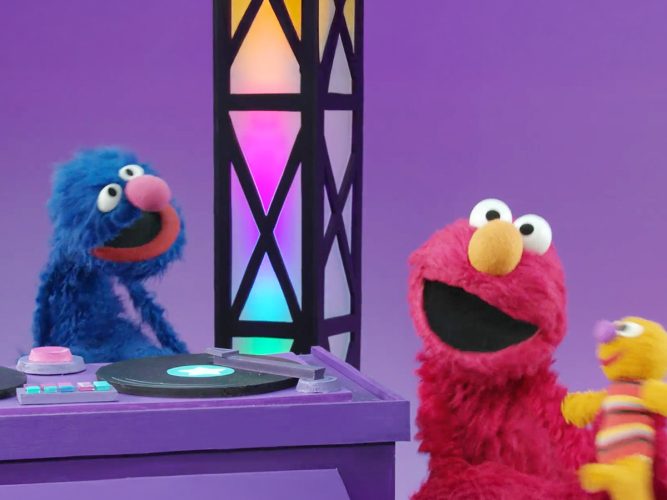
Elmo’s World: Dance Party
Watch and dance along with Elmo, Grover, and friends from around the world!
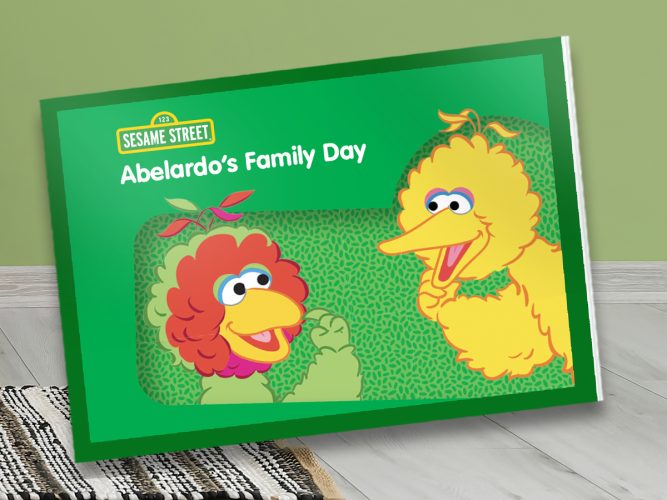
Abelardo’s Family Day
A storybook about the many ways families can spend time together and stay active!
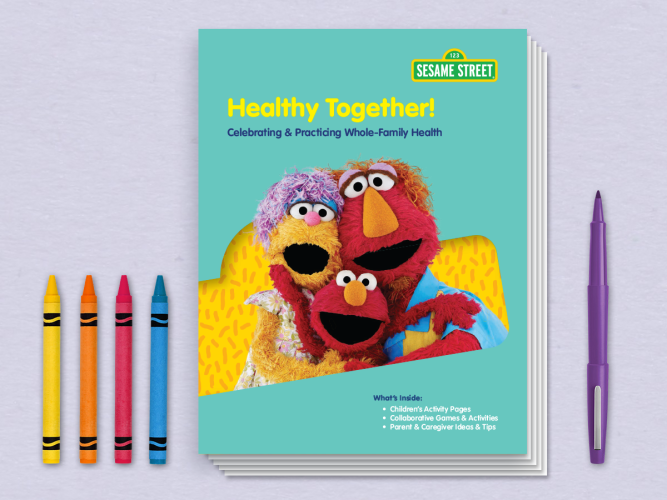
Healthy Together: Celebrating & Practicing Whole-Family Health
Use these whole-family activity pages to explore new ways to build healthy habits and take care of yourselves… as a family.
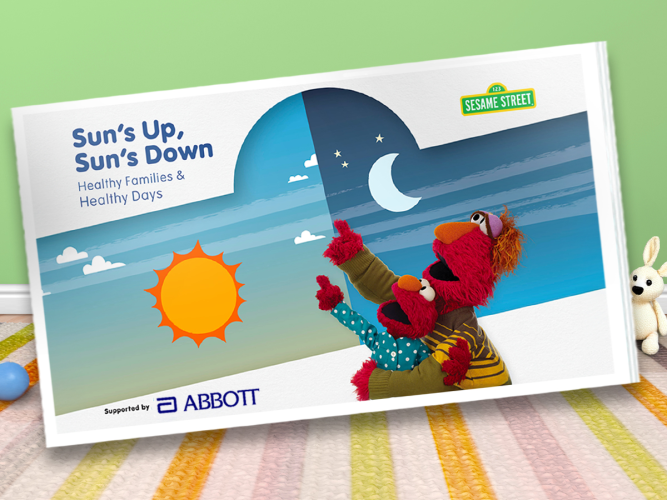
Sun’s Up, Sun’s Down: Healthy Families & Healthy Days
A storybook about all the healthy habits that make up our daily routines!
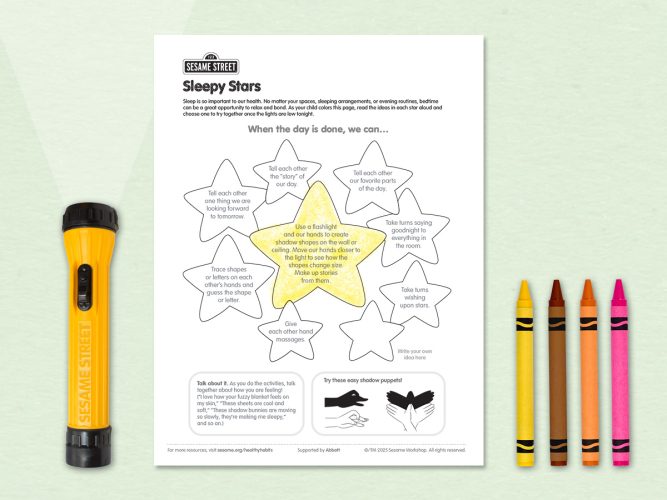
Sleepy Stars
Use this printable to try out some new wind-down strategies for bedtime.
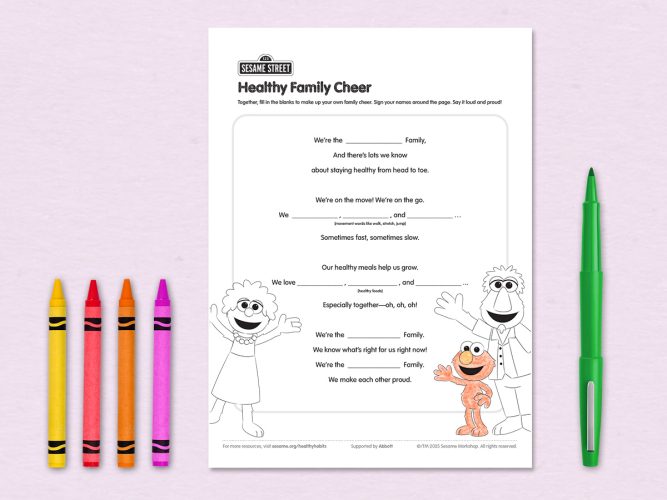
Healthy Family Cheer
Three cheers for healthy habits! Celebrate your family’s efforts... big and small.

Small Steps, Healthy Wins
A course for clinicians that offers evidence- and strengths-based guidance to aid in your work supporting families in building healthy habits that last a lifetime.
